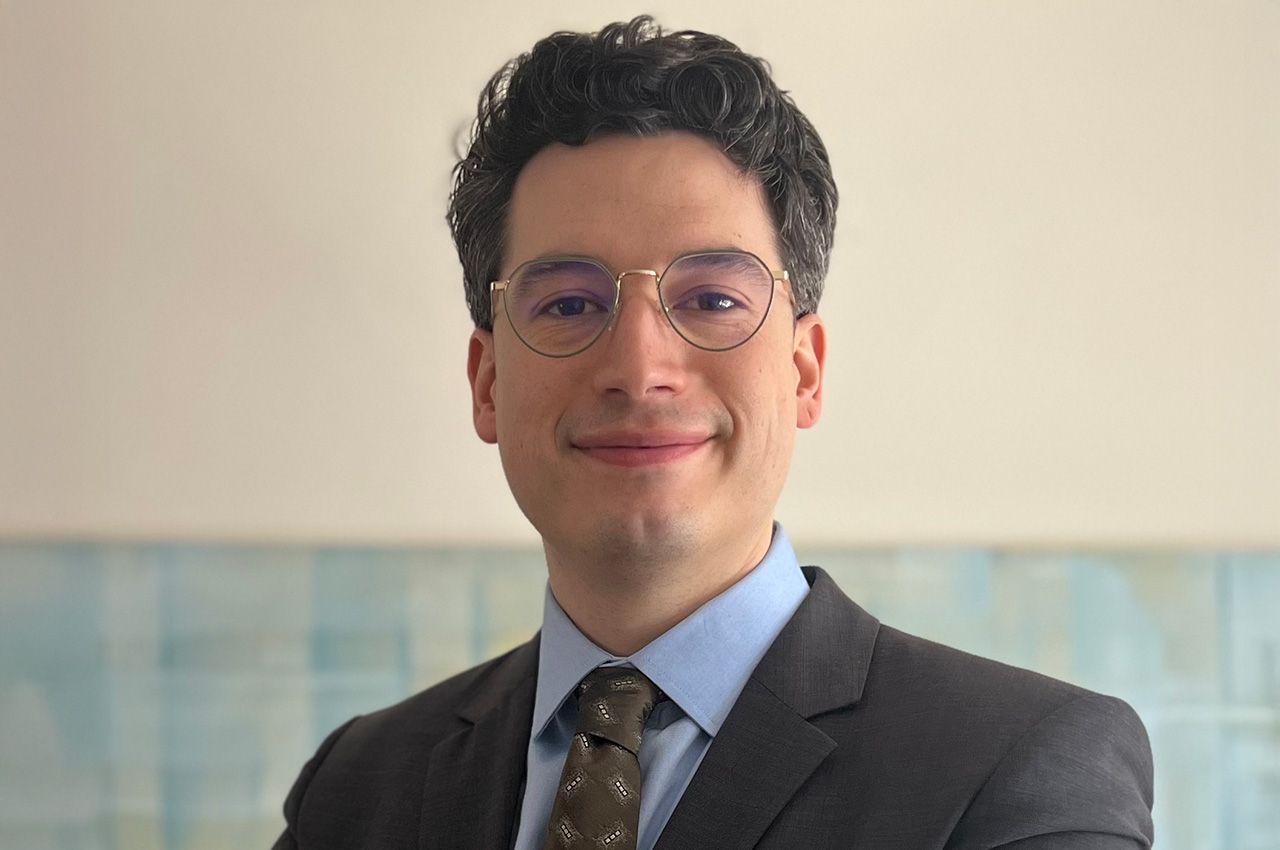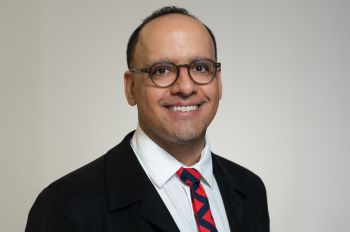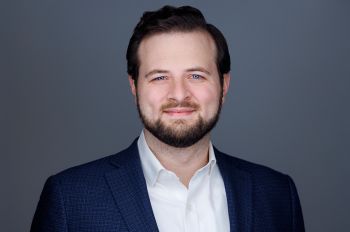The Constitutionality of Social Mobility: Lucien Ferguson Joins Chicago-Kent Faculty

“There’s all of this research—sociological, economic, political—showing that social mobility is crucial for a strong, stable democracy,” says Chicago-Kent Professor of Law Assistant Professor Lucien Ferguson, who joined the college’s faculty in fall 2025 after completing his Ph.D. in political science at Northwestern University.
His dissertation, “The Spirit of Caste: Recasting the History of Civil Rights,” won the American Political Science Association’s 2024 Edward S. Corwin Award for Best Doctoral Dissertation in the Field of Public Law. It, like much of Ferguson’s research, looks at the way the American legal system influences social mobility in the United States.
“I’m really interested in what role the law plays in allowing poor or other marginalized people to achieve or ascend the socioeconomic ladder,” says Ferguson. “I want to help people understand that social mobility, this familiar ideal that we associate with the American dream, is also a constitutional ideal.”
His current work focuses on the 14th Amendment of the United States Constitution, specifically how courts’ enforcement of its Equal Protection Clause has affected Americans’ ability to further themselves financially.
“Everyone is entitled to an equal opportunity for economic uplift,” says Ferguson. “‘Equal protection’ is interpreted as meaning that states should be neutral. But if we take the value of social mobility seriously, what ‘equal protection’ should require is that states actually intervene in areas of low social mobility to try to level the playing field.”
Ferguson says that inequality has been growing in the U.S. since the 1970s.
“The rungs separating the ladder have grown farther apart,” he says. “That means that more effort is needed for any individual to move from one area in the division of labor to the next.”
Ferguson believes this has created profound social problems in modern society.
“I think you see the effects of that in growing problems of homelessness, you see it in debates over education, where it has become increasingly common to insist that we’re in a zero-sum society and that everyone is in competition with each other—and that is one of the effects of having a really stratified economy,” he says. “I also see deep resentment and distrust. ‘The system is not working so that I can get what I deserve, which is my chance at the American dream.’ I think that is deeply felt right now and is having bad effects on the legal system.”
Ferguson first started thinking about these issues, and the other ways that the law affects the everyday lives of Americans, when he was working as a special education teacher in Chicago Public Schools. He would help formulate and follow individualized Education Programs (IEPs), which are developed for each student living with a disability and attending public schools as a way to help them achieve their educational goals. IEPs are mandated under the Individuals with Disability Education Act.
“That ended up being a really impactful experience for me because it helped me see how federal disability laws and state and local regulations really impact day-to-day lived experiences in the classroom,” he says.
He also learned about labor law and organizing as a member of the Chicago Teachers Union.
“There was a lot of organizing energy and a lot of effort being made to organize teachers at schools, because it was this really crucial moment where the structure of school governance and organization was changing,” he says.
After he left teaching, Ferguson enrolled in Northwestern’s dual J.D. and Ph.D. program, earning both degrees in 2023. He also acted as Drinan Visiting Assistant Professor at Boston College Law School.
“I’m really excited about joining Chicago-Kent,” Ferguson says. “The faculty is extremely impressive and I just think it’s so amazing to be able to join the law school community.”
Photo provided



